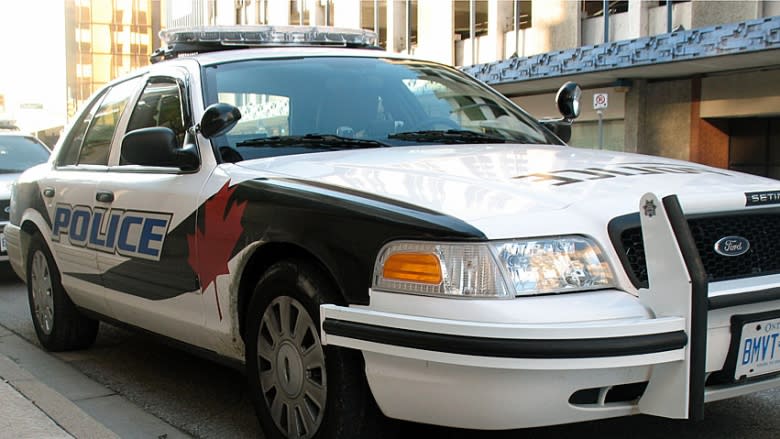Windsor area police forces not efficient, report says
Windsor's police chief says he's not alarmed by a new Fraser Institute report that ranks Windsor's force as one of the the least efficient in Canada.
The report compares the staffing levels of police forces with the populations and crime rates in the cities where those officers are deployed.
The report, Police and Crime Rates in Canada: A Comparison of Resources and Outcomes, found that between 2001 and 2012, the average number of police officers per 100,000 Canadians rose 8.2 per cent while the crime rate during the same period dropped by 26.3 per cent.
It also noted that most cities are actually adding police officers while the crime rate drops.
Chief Al Frederick Frederick pointed out Windsor is bucking that trend.
"We have not experienced what they're talking about in this report," said Frederick. "We're one of the few CMAs where the population of police officers per 100,000 has dropped dramatically."
Frederick criticized the report for using numbers from four years ago, and said the city now has fewer police officers, because of cuts within management ranks.
"The report and the data that they relied on is extremely old," said Frederick. "It's 2011 data. The number that we reported to Stats Canada as our total number of officers in 2011 was 466. We now have 440. So that is a drastic reduction if you factored that into the numbers today, our averages would be more in line with the average."
He added that Windsor needs more officers because of the number of nightclubs in the downtown area as well as the casino.
Higher numbers doesn't mean inefficiency
The study's author, Livio Di Matteo, a professor of economics at Lakehead University in Thunder Bay, Ont, based his results on Statistics Canada data for police resources, costs, and crime rates for a select set of census areas rather than specific police forces.
DiMatteo created a formula to predict the total number of police officers individual census areas should theoretically have, and then compared those numbers to the actual size of police forces providing a rough estimate of police staffing efficiency in those areas.
The report said Saint John, Winnipeg and Windsor, Ont. had the least efficient staffing levels, while the best results are found in Kelowna, B.C., Moncton, N.B., and Ottawa-Gatineau, Ont./Que..
DiMatteo told CBC Windsor just because Windsor is ranked third least efficient in the report doesn't necessarily mean its force is inefficient.
"This number comes out in terms of actual and predicted. I think all police forces, when they see their ranking and their comparison, just because your actual number is above predicted it doesn't automatically mean you're inefficient, you have to ask 'Are there any other extenuating circumstances that may explain the difference between the actual and predicted,'" he said.
He said between 2001 and the present the crime rate in Windsor has dropped 35 per cent.
In terms of police officers per 100,000 the numbers stayed relatively stable over that period, from about from about 179 per 100,000 in 2001 to about 177 in 2013.
"If you've accounted for that at a local level then you can argue that the residual is in some way due to inefficiency or an excess, but Windsor is an interesting city," he said. "Windsor is a border city, you're across from Detroit which is a major American metropolis with crime issues of its own.
DiMatteo said it is helpful to look at extenuating factors, such as needing more officers to deal with a spill over from Detroit and the fact that Windsor has a casino.
"It's useful to have the ranking and the comparison to see how you stack up and in a sense it provides a way of reviewing what you're doing and seeing what your reasons are that you're below or above," said DiMatteo.
On mobile? Click here to read full report.



